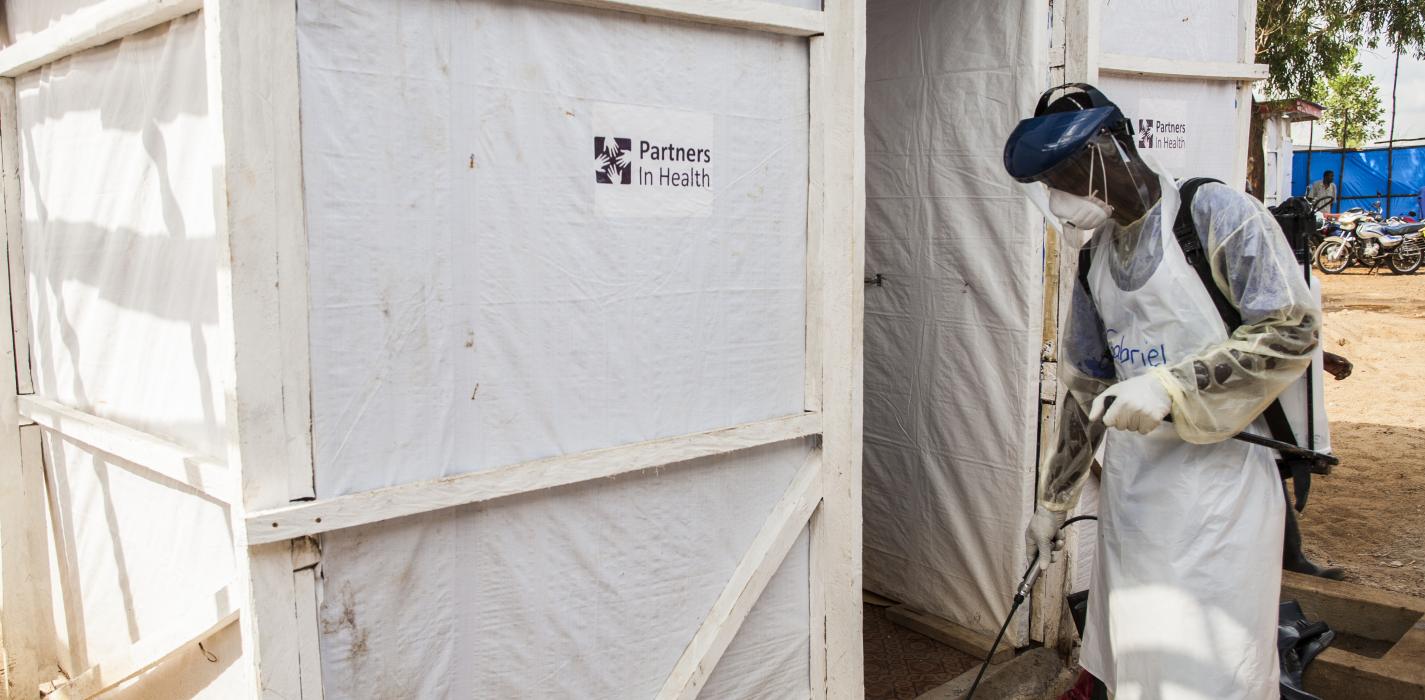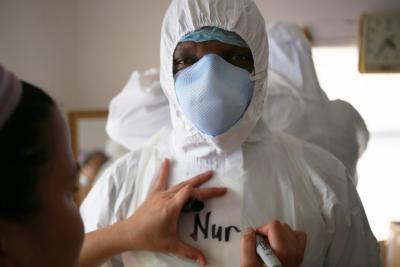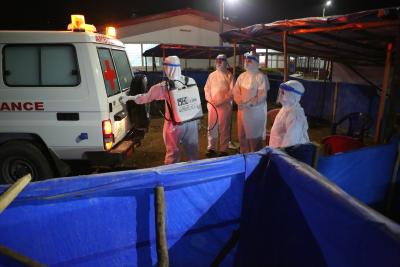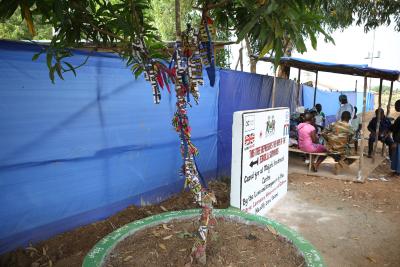Our History

In the summer of 2014, at the height of history’s deadliest Ebola outbreak, the government of Sierra Leone reached out to PIH for urgent support in responding. At the time, PIH leadership and clinicians had no experience treating the virus, nor did we work in West Africa. Despite that, late PIH Co-founder Dr. Paul Farmer knew PIH’s then decades-long experience in battling infectious diseases globally could help end the Ebola epidemic.
In October 2014, PIH’s work began Sierra Leone.
Anticipating many challenges, we were fueled by a simple belief: health care is a human right. We also knew that Ebola’s rapid spread and deep impact were symptoms of weak health systems shaped by decades of injustice: colonialism, the trans-Atlantic slave trade, and civil war, to name a few, in both countries.
“Across West Africa, weak health systems are a legacy of colonial rule, which, promises and propaganda aside, knew few successes in public health—and almost none in providing medical care for the natives,”
Dr. Paul Farmer wrote in Fevers, Feuds, and Diamonds: Ebola and the Ravages of History.
Such injustices allowed the West Africa Ebola outbreak to become the largest and deadliest in recorded history—with more than 28,000 people sickened and 11,000 deaths.
PIH began treating patients in collaboration with the Ministry of Health. The aftermath of the decade-long war was present in Port Loko and Kono Districts—where PIH was invited to provide care and support out of Ebola Treatment Units (ETUs) and existing health facilities.
As the death toll rose, international response remained slow and inadequate. Farmer and other PIH leaders knew they needed to act fast. First step: recruit staff.

Nurse Cheedy was born in Sierra Leone but lives and works in the US. He returned to Sierra Leone with the PIH Ebola response team to treat patients in the Ebola Treatment Unit.
Rebecca Rollins / PIH
“We had clinicians from Haiti who were there helping us. People in Mexico and Peru, who this wasn’t impacting them, but they were in solidarity to people who were suffering and knew that’s what we did best. Even if they couldn’t go, they were supporting behind the scenes to take care of other things,” says PIH CEO Dr. Sheila Davis, who served then as chief of Ebola response.
“It was never a question that we should go and that everyone would pick up the slack,” adds Davis, “as many staff were needed immediately to provide logistics, operational, and on-the-ground support.”
In the months ahead, PIH trained and deployed 200 volunteer clinicians from the United States and hired community health workers (CHWs) and support staff across Sierra Leone.
Long-Term Health System Strengthening
Nurses, doctors, CHWs, and other staff were working across the country, night and day, doing whatever it took to get patients well again. As Ebola ravaged through communities, killing hundreds of health care workers, those who survived remained committed to providing services.

Partners In Health clinicians prepare to receive patients during the night shift at the Maforki Ebola Treatment Center triage area.
Rebecca Rollins / PIH
PIH-trained clinicians rotated in long shifts through ETUs in the capital of Freetown and more remote Port Loko and Kono districts. They focused on finding quicker ways to provide rapid rehydration to patients—key to treating a disease like Ebola—and moved from oral solutions to IVs. It was a risky move for caregivers, given transmission was through contact with contaminated fluids like blood, but it was lifesaving for many. All told, roughly 4,000 survivors left PIH-supported ETUs and returned home.
At Port Loko, each survivor who left the facility tied a ribbon made of local fabric to what became known as the “Survivor Tree.” The tree, now several meters tall, stands there, with remnants of fabric clinging to the highest branches. Many survivors still work for PIH Sierra Leone today, a decade later.

The ‘survivor’s tree’ outside of the Maforki Ebola Treatment Unit.
Rebecca Rollins / PIH
Committed to long-term health system strengthening, PIH remains in Sierra Leone. PIH believed staying was the morally right decision, the best way to prevent future outbreaks, and the means to rebuilding the local health system. True to our mission, PIH made an open-ended commitment to Sierra Leone, partnering with the Ministry of Health to strengthen the country’s overall health system.
Over the past 10 years, PIH has worked with government partners to strengthen key elements known as the “five S’s”: staff, stuff, space, systems, and social support. With significant improvements in each area, health systems have become more reliable and resilient across Sierra Leone.